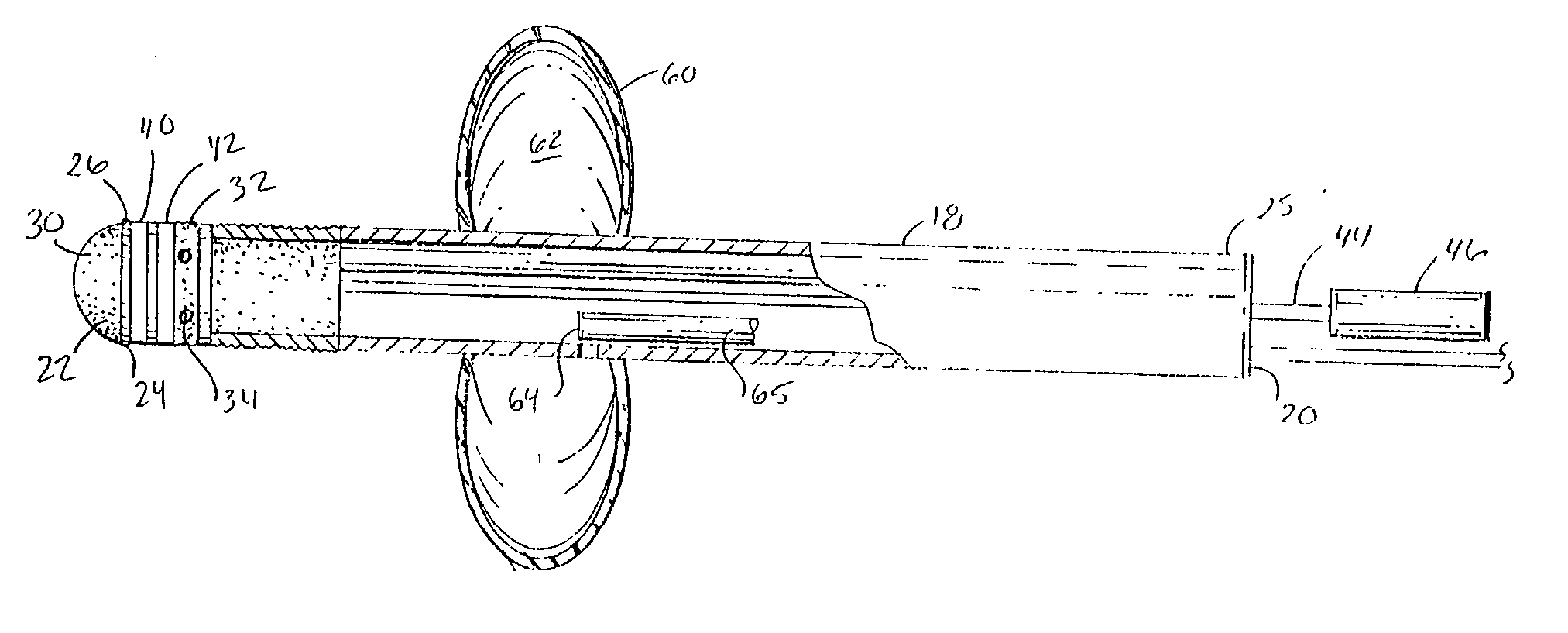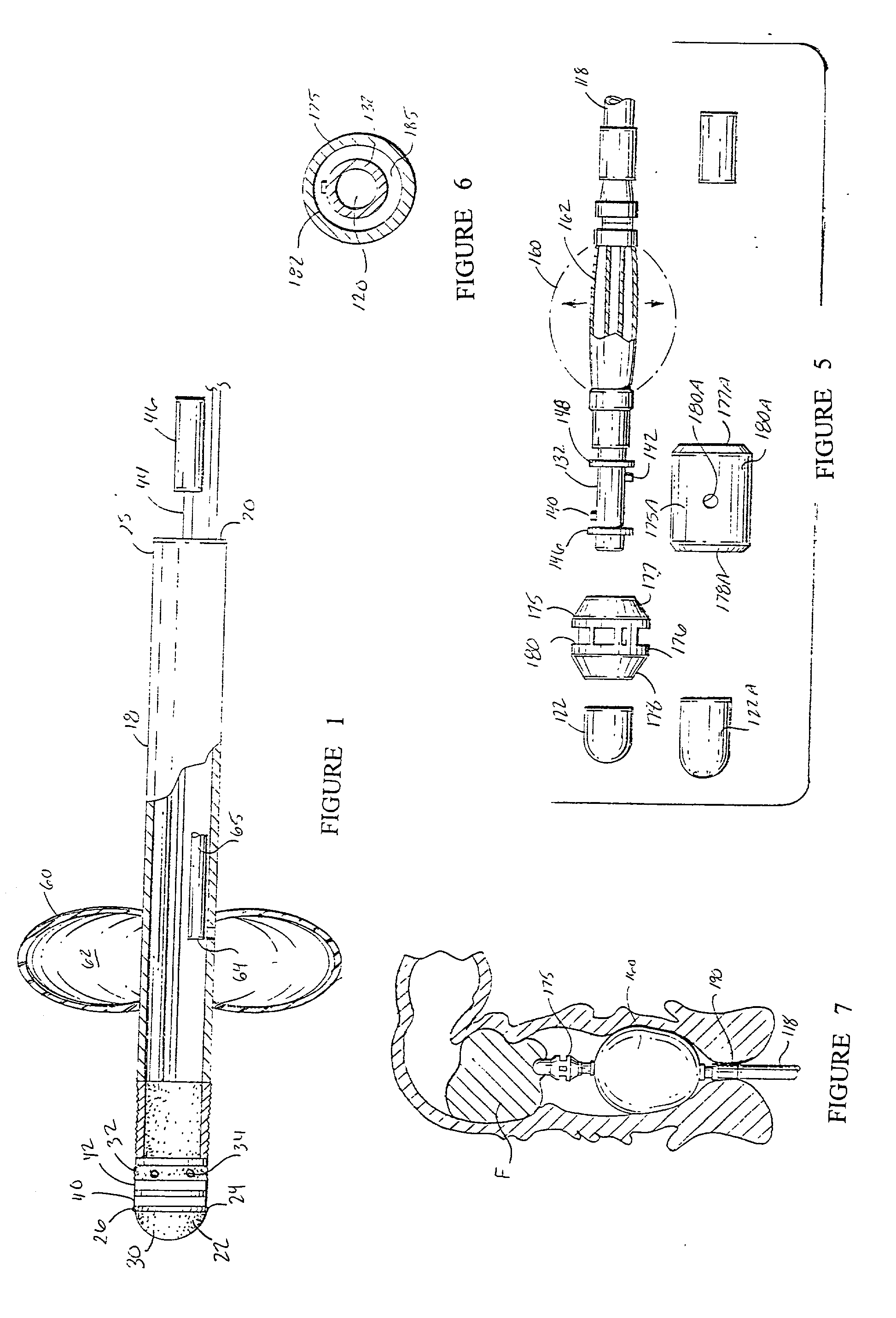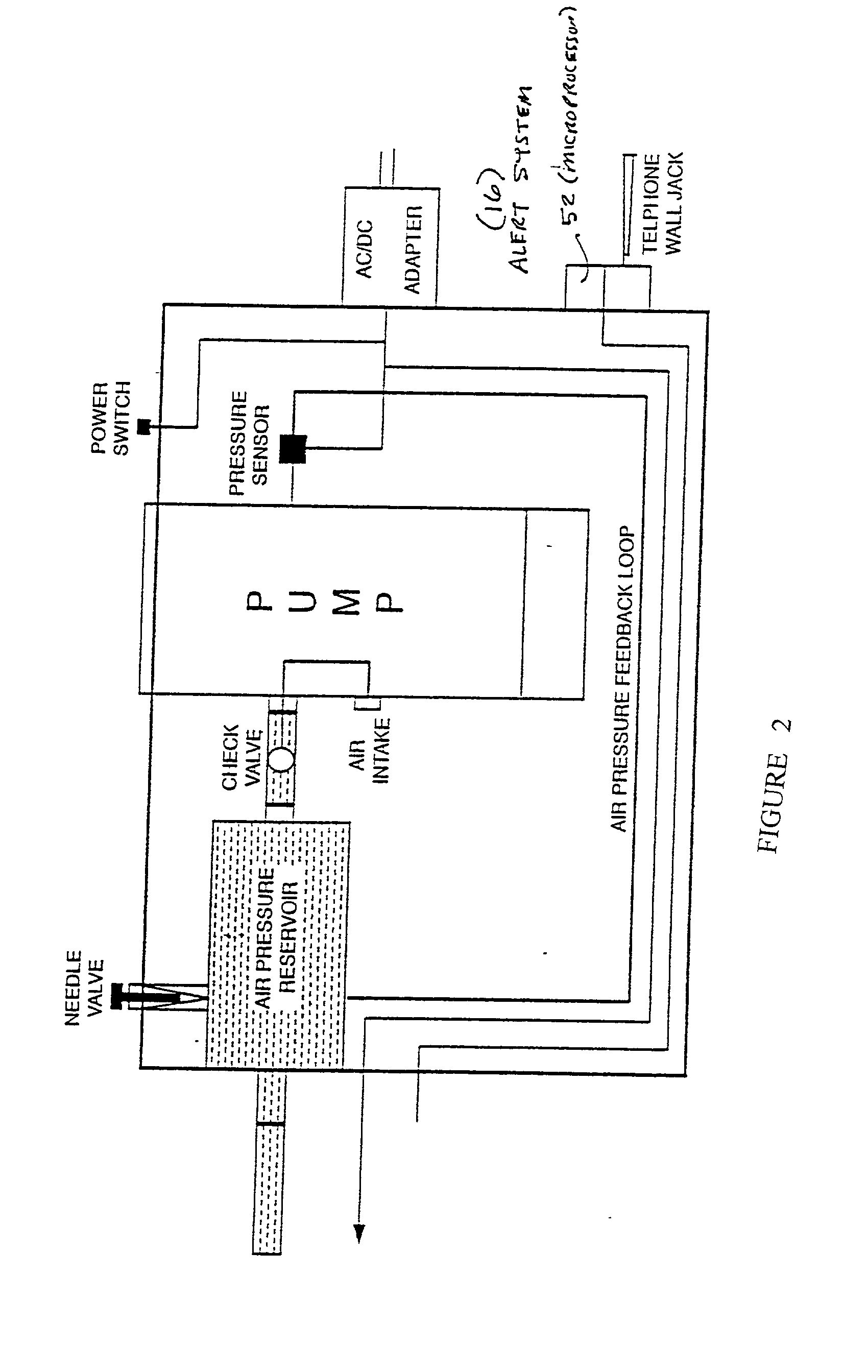Bowel probe & method for controlling bowel incontinence
a bowel incontinence and probe technology, applied in the field of system for controlling episodes of bowel incontinence, can solve the problems of curtailed activities, limited social involvement, and bowel incontinence presents problems to nursing homes and caretakers, so as to prevent necrosis of rectal tissue, prevent unnecessary or undue restriction of capillary blood flow, and prevent discharge of fecal matter
- Summary
- Abstract
- Description
- Claims
- Application Information
AI Technical Summary
Benefits of technology
Problems solved by technology
Method used
Image
Examples
Embodiment Construction
[0027] Turning now to the drawings, particularly FIG. 3, the system of the present invention is schematically diagrammed and is generally designated by the numeral 10 and includes a probe 12, an air system 14 and an alert system 16. The probe is intended for insertion by medical personnel or, even in some cases, may be self-inserted by the patient after the procedure is demonstrated and practiced. The probe is normally inserted so the tip is at the rectosigmoid junction in the human colon as seen in FIG. 6. Generally the device is inserted approximately 8 centimeters into the rectum. After insertion, a balloon cuff on the probe is inflated with approximately 20 cc of air using a common plastic syringe or squeeze bulb. The probe is then withdrawn until it encounters resistance afforded by the anal sphincter. This procedure allows either the patient or medical personnel to determine if the balloon is sufficiently inflated and is correctly positioned with the tip free in the rectal amp...
PUM
 Login to View More
Login to View More Abstract
Description
Claims
Application Information
 Login to View More
Login to View More - R&D
- Intellectual Property
- Life Sciences
- Materials
- Tech Scout
- Unparalleled Data Quality
- Higher Quality Content
- 60% Fewer Hallucinations
Browse by: Latest US Patents, China's latest patents, Technical Efficacy Thesaurus, Application Domain, Technology Topic, Popular Technical Reports.
© 2025 PatSnap. All rights reserved.Legal|Privacy policy|Modern Slavery Act Transparency Statement|Sitemap|About US| Contact US: help@patsnap.com



